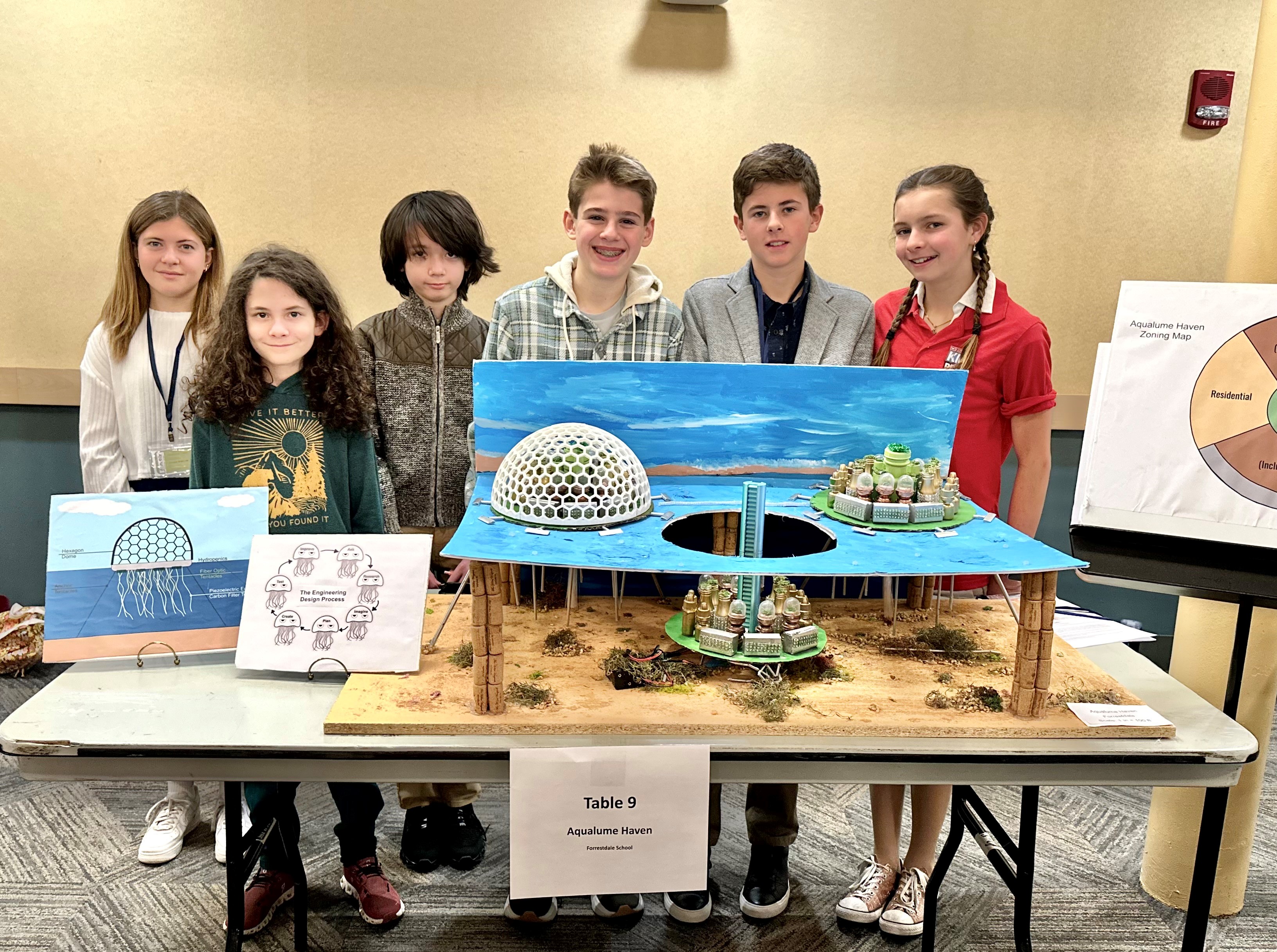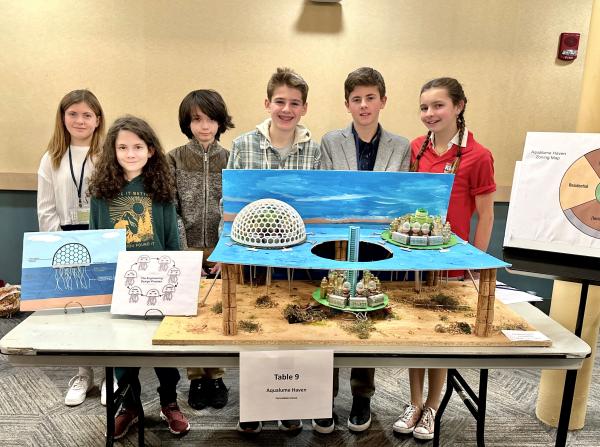KID REPORTERS’ NOTEBOOK
Future City Competition Encourages Students to Make the World a Better Place


Forrestdale School 7th Grade Team shows off their model
Earlier this year, students gathered around the country to participate in regional competitions coordinated by Future City, a Science Technology Engineering and Math (STEM) program for 6th-8th grade students. This is an annual competition that challenges 70,000 students internationally to work in teams to solve urban design and sustainability issues using engineering concepts.
Future City is a part of DiscoverE, a nonprofit organization dedicated to creating opportunities in STEM and engineering for students from pre-k to those entering the workforce. They are especially focused on reaching females, under-represented, and under-served audiences. Students spend their fall semesters preparing a project plan, a 1,500 word essay, a to-scale city model, and a 7-minute presentation. This year, teams were tasked with designing floating cities 100 years in the future to address rising sea levels and climate change in accordance with the theme, “Above the Current.” In January, three students from each team presented to judges at their respective regional competitions.
The winner of each regional contest then participates in the national competition in Washington D.C. in mid-February. The winning team this year was Team Salacia from Downingtown Middle School in Pennsylvania (Philadelphia) Region, who received a $7,500 grant for their classroom and a trip to the U.S. Space Camp in Huntsville, Alabama. The 2nd through 5th place teams also received grants for their classes. These prizes and those at the regional level are funded by generous sponsors, including engineering firms, professional organizations, and community members.
I participated for the first time this year and presented for my school’s 7th grade team in the New Jersey regional competition at Rutgers University. The New Jersey Regional Coordinator, Erica “Sunny” Mullen, appreciates the program for many reasons, but emphasizes the essential social skills that students learn. “One of the things I like most about Future City is the soft skills that all these students learn from it — like the teamwork, the writing, the presenting and speaking skills, and just being there for one another, cheering each other on, and being supportive.”
Additionally, Mullen encourages these future engineers, especially women, to explore the various opportunities in the industry. She advises, “Students should be inspired by all of the possibilities and paths that engineering has to offer. There are many fields of engineering and a large variety of roles within those fields. Stay curious, ask questions, and don’t be afraid to try!”
